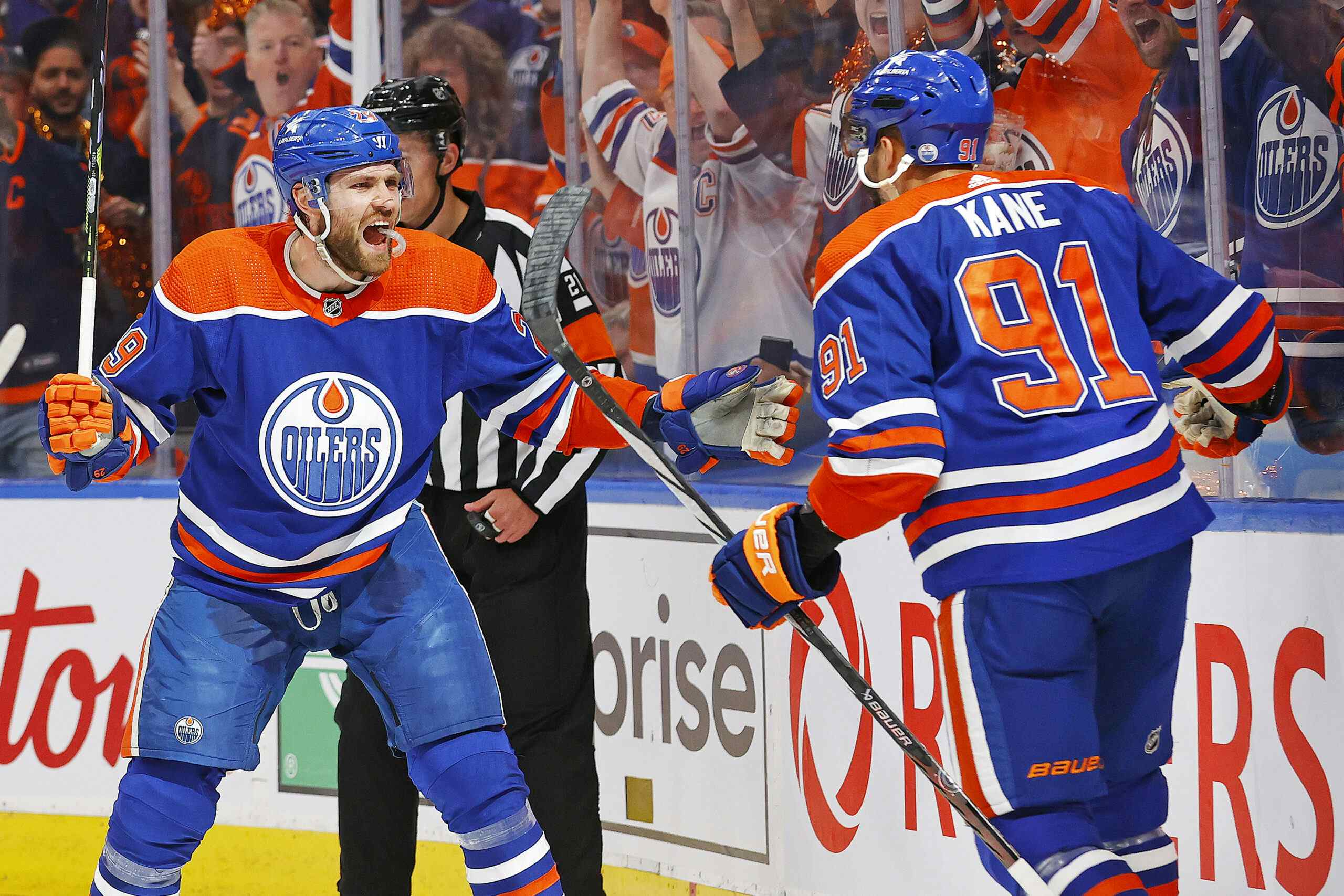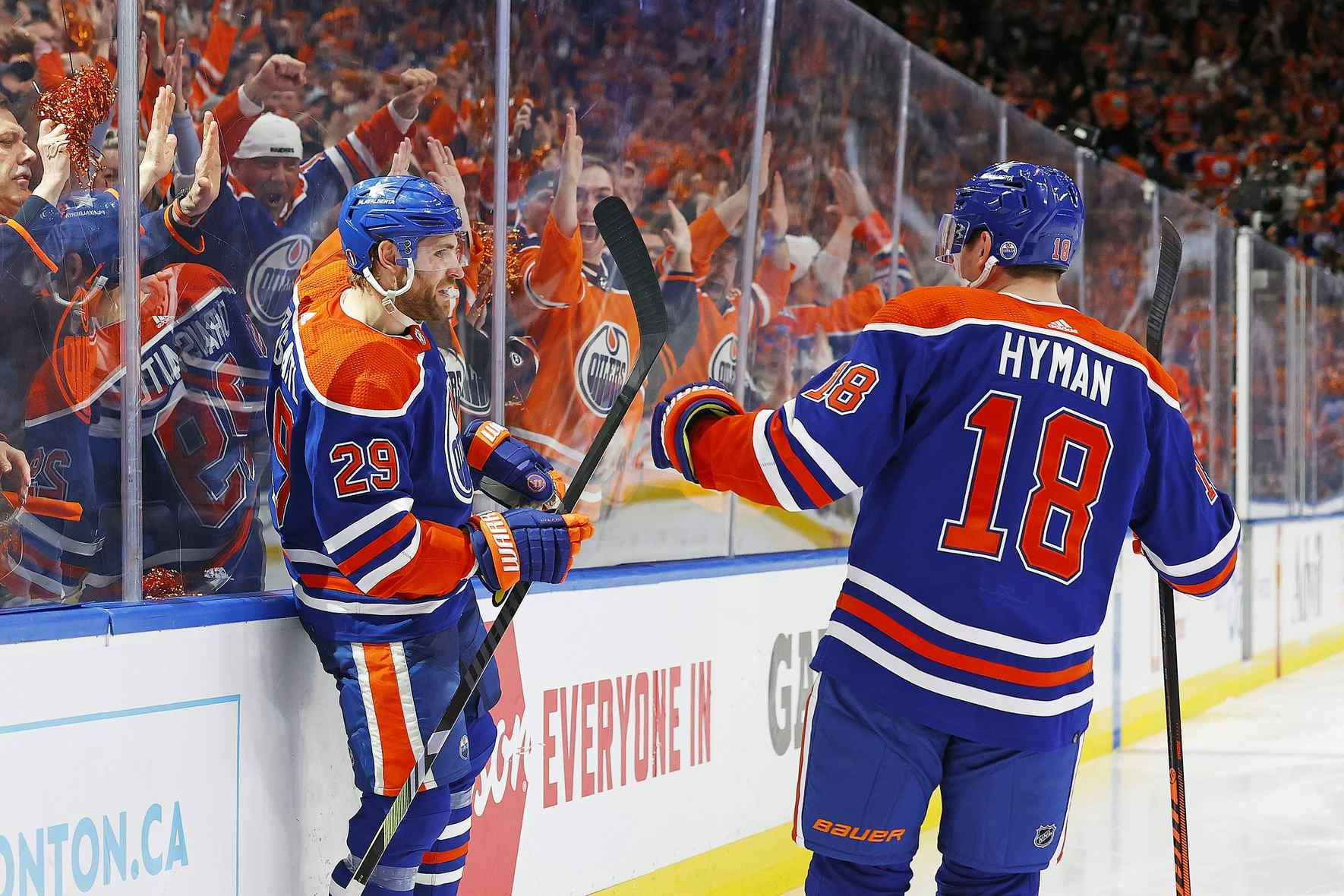Thoughts on the new arena deal

On Wednesday, Edmonton City Council voted 10-3 in favour of an amended framework to construct a new downtown arena. Mayor Stephen Mandel said the words that many an Oilers fan with arena fatigue wanted to hear:
It’s 100 per cent. A deal is done.
With all due respect to the mayor, the deal actually isn’t done and it won’t be unless everything goes as hoped by the parties on March 7. That and some other comments about the revised agreement after the jump.
The city’s update on the revised arena deal is available from the city’s website and serves as the primary source for the points made below.
The deal is not done, because there’s still $114 million in funding that needs to be secured. The city hopes to pick up $7 million each from the federal and provincial governments to fund a related community rink and $100 million from the provincial government to pay for the arena construction. Mandel sounded optimistic that the March 7 provincial budget would make it clear that the money was coming and also exactly where it was coming from, but until it’s actually announced this isn’t a done deal.
With that said, that extra $100 million seems more likely now, given finance minister Doug Horner’s comments in the piece linked in the last paragraph:
It would be fair to say we’re looking at something all municipalities would have access to. We’re not funding directly corporations to build facilities.
Putting those comments another way: ‘We can’t be seen to be directly funding corporations, so instead of just cutting a check for Katz we might put together a new program that will sprinkle money all over the place and allow the City of Edmonton to cut that check.’
As for the complete funding breakdown, here’s the chart from the city’s report:

All told, $333 million of the $601 million total budget for the project is currently expected to come from public coffers. The ticket tax will be levied by the city both on the new arena and at Rexall; the rate for that tax will be determined by Katz’s people. Katz’s contribution will be “paid as rent over 35 years” – meaning that for the next 35 years, the money the Oilers pay to play in the new arena will be used to pay off Katz’s portion of the arena’s construction costs.
One interesting change: the ticket tax is being expanded to include an additional annual contribution of $1.5 million to pay for “major capital rehabilitation and replacement.” In other words, Katz will still pay for major repairs and renovations, but he’s now doing it out of the ticket tax, ensuring there’s money available for those costs. This is beneficial for the Katz group because it also raises the taxes on events at Rexall, heightening the difficulty for the latter facility to remain competitive.
What happens if costs rise again? Katz Group will be responsible for any increases in the price of the Winter Garden; the city’s contribution is capped at $25 million. On the arena, presumably the 50/50 rule would apply for most items, but not for all. As one example, if changes to the east wall are required because Katz Group’s plans for development around the arena change, “the City will be responsible for the cost.” The city will also pay for the community rink, including picking up that extra $14 million if the provincial and federal governments don’t contribute $7 million each.
In exchange for $333 million in public dollars, as well as taking out the loans to cover the initial construction (which will be paid off by “rent”) taxpayers get:
- A 35-year location agreement with the Oilers
- A guaranteed $100 million in development around the arena (the Journal article quoted above says the Katz Group currently plans $2 billion in development around the arena, but the deal only guarantees $100 million)
- Municipal property tax payments which are capped at $250,000 annually (assuming they reach the cap every year for the next 35 years, this comes out to a little less than $9 million).
- Access to the arena for four weeks a year, for community purposes only (i.e. the City can’t use it commercially) and with “food, beverage and other revenues” going to the Katz group for those four weeks.
- An obligation to pay $2 million/year for advertising for the next decade
Put it all together and essentially this deal sees a huge amount of financial risk falling on the city. The only way this deal makes any kind of sense is if the development around the arena explodes; there have been all kinds of rosy projections on that front but the reality is that the future is uncertain, and that no matter what happens with that development, the city will still need to pay for the arena. It’s a dangerous gamble because of the stakes involved – if all goes as hoped, the city is a better place for it, but if things go poorly than one-third of a billion dollars will have been sunk with no hope of recouping a portion of that money.
The other benefit for the city is that the Oilers are going to be around for a long time – both because of the location agreement and because this new deal is going to make the team even more profitable than it already is.
Recently by Jonathan Willis
- How not to kill a penalty
- Jim Vandermeer and Anthony Stewart placed on waivers
- Anatomy of a power play goal
- How does Ralph Krueger plan to use his lines this season?
- "The Vancouver Canucks have no interest in Scott Gomez"
NATIONDRAFTS
All week long the Alberta Nation Network will be pumping our first ever NationDrafts online draft. With over $10,000 in prizes to win and a portion of the proceeds going to local charities – it is the most fun you can legally have on the internet. Only $20 per team – Click here to enter.
Recent articles from Jonathan Willis





